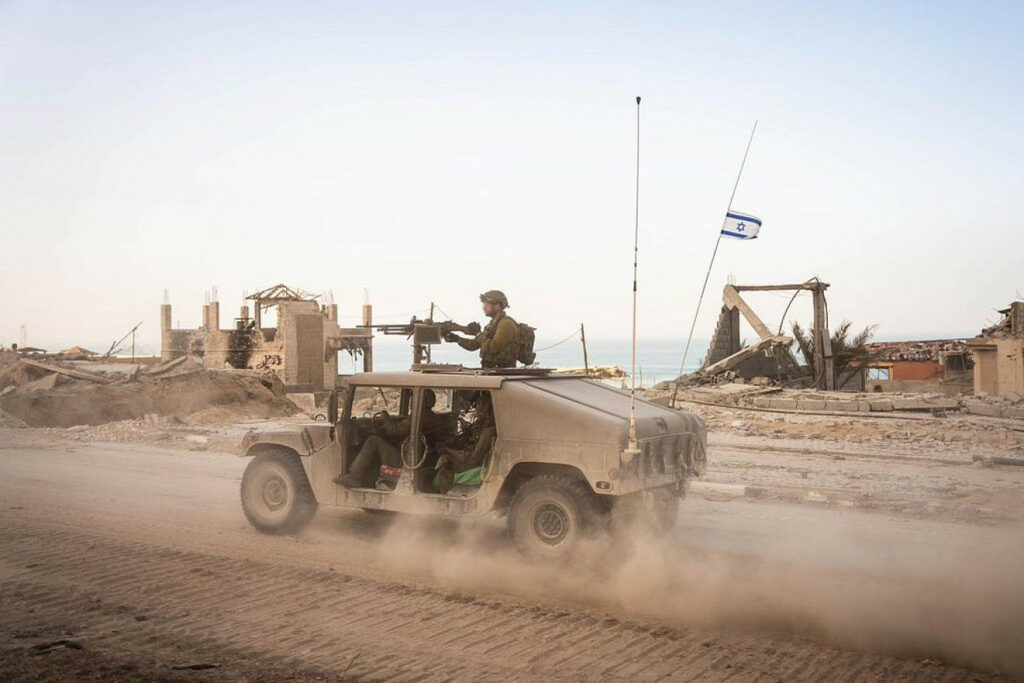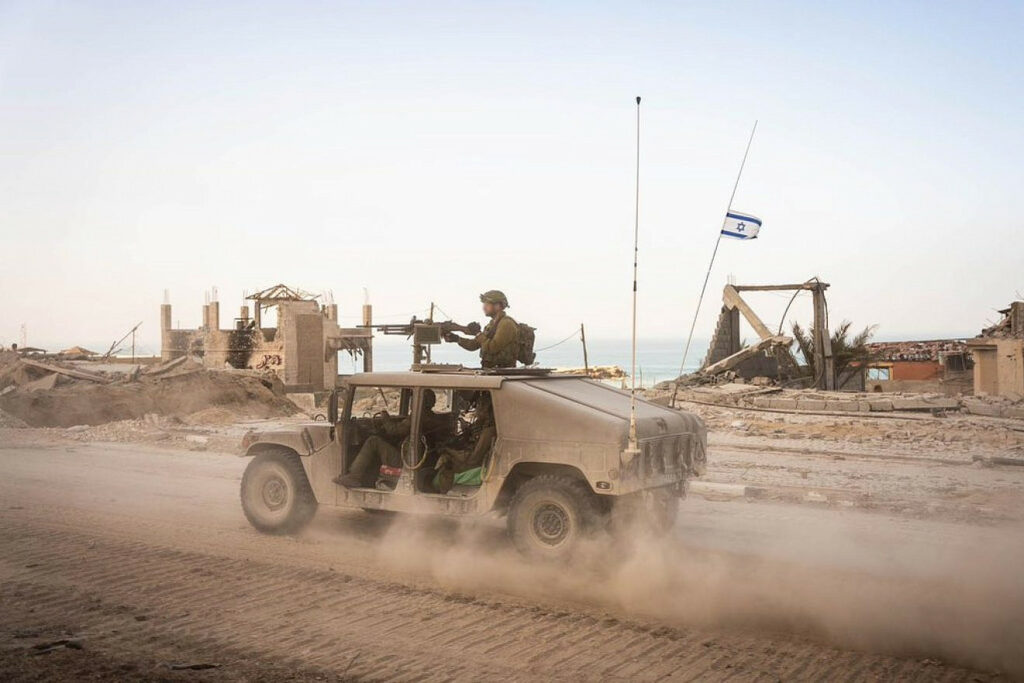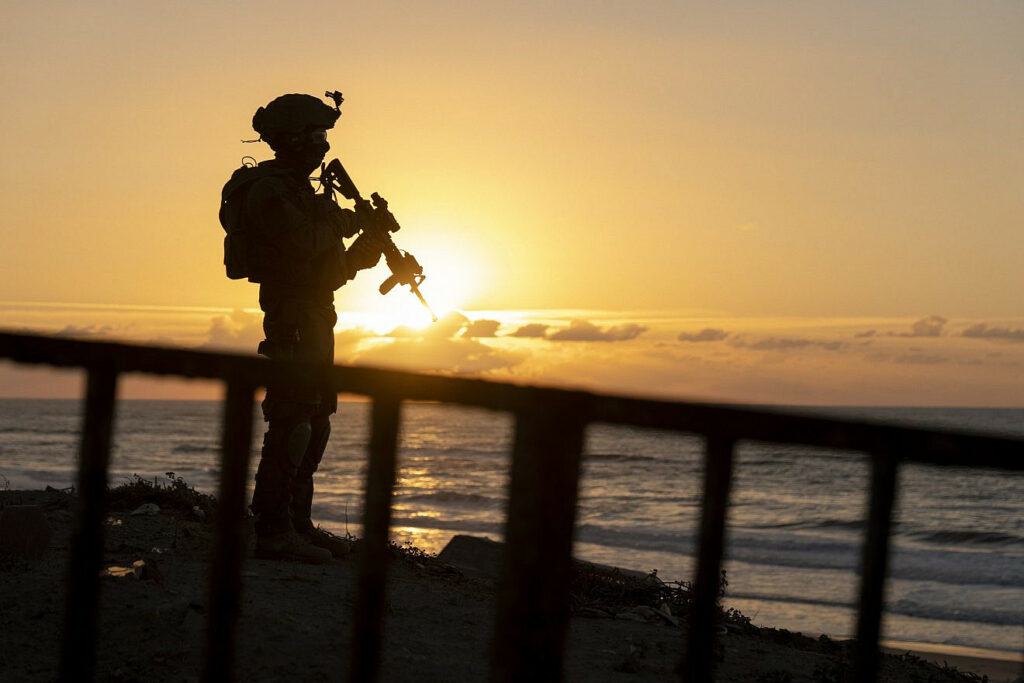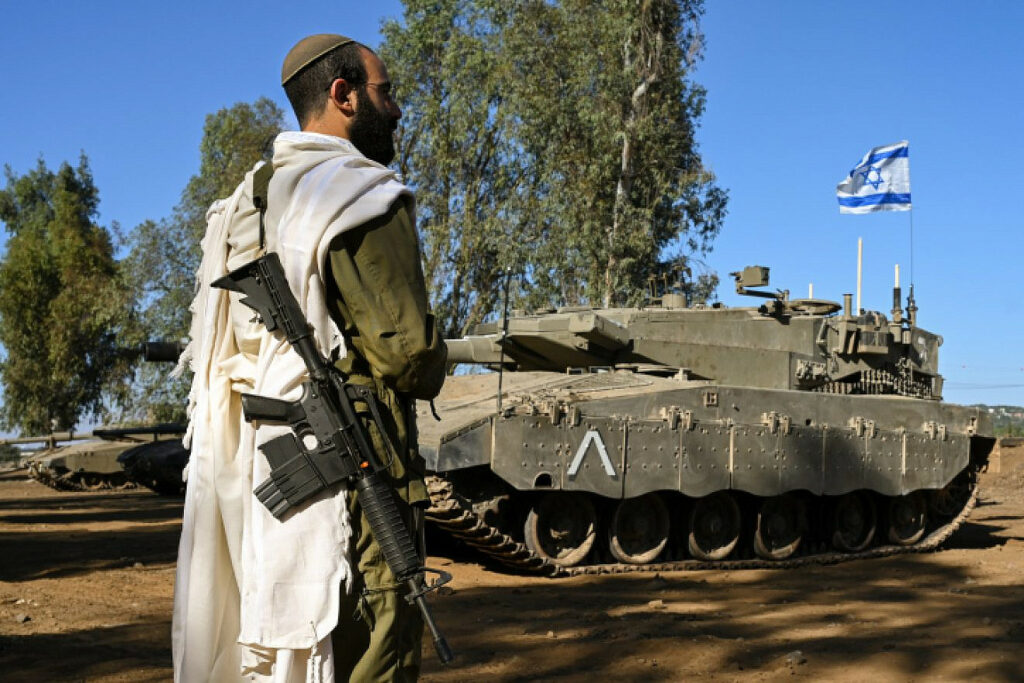
War-time Miracles
Amidst the tragedy of war are uplifting true stories of inspiration.
Rabbi Yigal Cohen related a story of a miracle that happened during the current war that soon spread. According to the rabbi, a group of soldiers in Gaza had a break in their fighting, and some of the soldiers took the opportunity to sit and have a meal together while others were chatting. Some of the soldiers were cleaning their weapons, a routine and necessary task that requires constant attention.
Soldiers are trained to treat any weapon as if it is loaded and should never be pointed at something they do not want to shoot. Before cleaning, a rifle must be checked which requires removing the magazine, cocking it twice, and pulling the trigger while pointing the weapon away from any people. This should eject any bullet that was in the chamber and if in the unlikely chance a bullet is still in the chamber, it should fire, leaving the weapon empty.
In this case, one soldier checked his weapon. He removed the magazine and cocked it twice. No bullet ejected. In theory, there should not have been any bullets in the chamber. But adhering to the safety routine, he pointed the weapon towards an empty field and pulled the trigger.
To his surprise, the gun fired. The soldiers were unaware that a pair of terrorists had just exited a tunnel in the adjacent field. One terrorist was aiming a rocket propelled grenade (RPG) at the group of resting soldiers. The stray bullet hit RPG, causing it to explode and neutralizing both terrorists.

(Source: JNS)
“This was clearly a miraculous occurrence,” Rabbi Cohen noted. “We might think we are the ones fighting the battle. But actually God is fighting for us. God is doing the work for us.”
The rabbi cited the verse in the Bible:
“Hashem will battle for you; you hold your peace!” Exodus 14:14
The rabbi also presented a video of an IDF Seren (captain) relating yet another story from the battlefield. The Seren told of a group of soldiers traveling through the battlefield in Gaza in an armored personnel carrier (APC). The Major in the APC told his driver to advance. For some inexplicable reason, the driver put the APC into reverse and drove backwards. The officer repeated his order to drive forward and advance.
The captain relating the story noted that it was bizarre for a soldier to ignore a direct order from a Major.
“Why would he do the exact opposite?” he asked.
Suddenly, the soldiers in the jeep felt a bump and heard a grinding noise. The jeep had just run over a terrorist who, unbeknownst to them, had succeeded in sneaking up on the jeep and was about to attach an explosive device to the metal body.
“This is a tactic used by the terrorists and can, unfortunately, be successful,” the captain noted. “But in this case, there was no longer a terrorist or an explosive so the IDF soldiers were safe. You might think that the driver saw the terrorist but in these APCs, the driver can only see forward, and even that, not very well. So why did he go backwards?”
At this, the captain pointed up to heaven and nodded.
“The driver had a navigator guiding him from above,” the captain said.
He then related another story from the battlefield. He noted that one of the more horrible aspects of war is friendly fire, which is when troops fire on their brothers-in-arms.

“With the amount of troops and the conditions in Gaza, it’s nearly impossible to avoid friendly fire,” the captain said. “Thousands of troops, different units, crowded areas with buildings that can hide terrorists or our own troops, so many different objectives with unclear battle lines, darkness, fog, and the soldiers are under enormous pressure. We work very hard to avoid this, working to know exactly where everyone is at all times, and when they can open fire. But this is Gaza and every soldier has a bullet in the chamber, ready to fire at all times.”
“In one case, a force from the 51st Battalion of the Golani Brigade accidentally fired on two of our troops. They fired with Katlan [a remote controlled Browning heavy machine gun] mounted externally on a Namer APC.”
“A Katlan is connected to a computer and is not aimed by a soldier. It doesn’t miss,” the captain related. “One of the soldiers who was fired at showed me a hole in his pants that was made by the bullet. I was shocked. A Katlan has a huge shell and doesn’t miss, especially at a range of five meters.”
“The soldier agreed, but said the Browning malfunctioned and they replaced it with a MAG [Belgian-made 7.62 mm belt-fed machine gun]. But I was still shocked. Even with a MAG, survival is unlikely at that range. The soldier explained that when they switched to the MAG, they didn’t have time to zero it in. I should have died but I only suffered a hole in my pocket. I wasn’t even wounded.”
The soldier then took a small book out of the pocket that had the bullet hole. The book was Orot HaTeshuva [Lights of Repentance] by Rabbi Avraham Kook. The captain noted his surprise.
“It is crazy to think that a soldier leaves for war carrying a book into battle,” the captain said. “But the contrast is amazing. What does the enemy hold in their pockets? What do they believe? What do they do?”
“But the soldier explained that the bullet passed through his pocket without injuring him or touching the book that was in the pocket. It is even more than a miracle. It is written that God performs miracles when necessary.

The captain quoted Psalms:
A thousand may fall at your left side, ten thousand at your right, but it shall not reach you. Psalms 91:7
Rabbi Zamir Cohen appeared in a video in which he described a war-time miracle.
“Hamas released a video in which they outlined the plans they had to infiltrate 22 kibbutzim on the border with Gaza,” Rabbi Cohen said. “They managed to breach 20 of them, wreaking havoc, murdering, raping, and even capturing small children. However they didn’t enter two kibbutzim; Sa’ad and Alumim. In the video, Hamas explains why they did not enter those kibbutzim.”
“In the video, terrorists are seen arriving at the gates of the kibbutzim. But both of these kibbutzim are Sabbath-observant; a fact that was unknown to the terrorists. The massive metal front gates are locked securely since no vehicles travel on Shabbat. When faced with these locked barriers, the terrorists turned around and headed for other targets.”
Rabbi Cohen cited a song sung at the Shabbat table that was written by Rabbi Abraham ben Meir Ibn Ezra (11th century Spain).
“For if I guard Shabbat, God will protect me” (Ki Eshmora shabbat, el Yishm’reni)
Rabbi Cohen related another story to illustrate the point. He related that a young non religious woman began to observe Mitzvot and become religious. She told her husband and this continued for several months. One week, her husband suggested they join their friends for a party on Shabbat. She reminded him of her commitment and an argument ensued. Ultimately, they decided to stay home and spend Shabbat together. The party the husband had intended to attend was the Supernova music festival.
“Today, they are with us, healthy and unharmed, free from trauma, injuries, or damage,” Rabbi Cohen said. “The nation of Israel is bound by a duty of mutual responsibility. When each of us decides to elevate our level of Shabbat observance, even those who struggle with this to be without their cell phones, but commit to not traveling, not turning on lights. With each step we take, we rise higher, until we arrive at complete observance of the Shabbat. If each person takes this on, dedicating his observance to the protection of the people of Israel, the soldier of Israel, to Israel’s victory over evil and the rescue of our captives which include young children, we will merit a complete redemption
The post War-time Miracles appeared first on Israel365 News.
Israel in the News